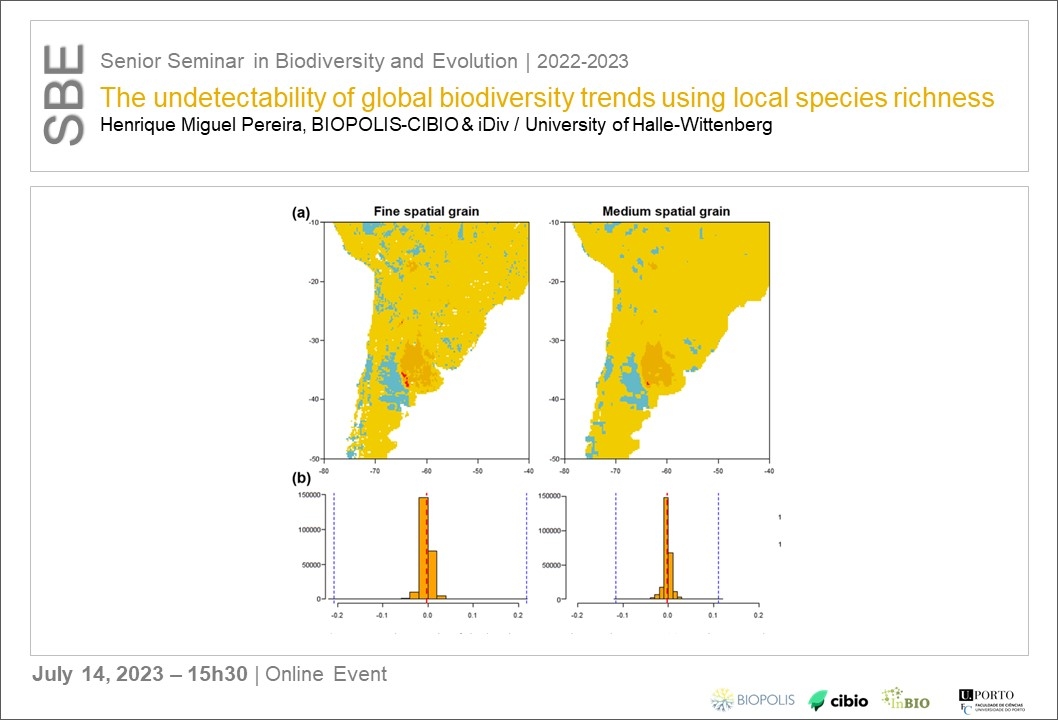The undetectability of global biodiversity trends using local species richness
Event
SENIOR SEMINAR IN BIODIVERSITY AND EVOLUTION
July 14th, 2023
Henrique Miguel Pereira, BIOPOLIS-CIBIO & iDiv / University of Halle-Wittenberg | 15h30 | Online Event

SENIOR SEMINAR IN BIODIVERSITY AND EVOLUTION
Although species are being lost at alarming rates, previous research has provided conflicting results on the extent and even direction of global biodiversity change at the local scale. Here, we assessed the ability to detect global biodiversity trends using local species richness and how it is affected by the number of monitoring sites, sampling interval (i.e. time between original survey and re-survey of the site), measurement error (error of the measurement of the local species richness), spatial grain of monitoring (a proxy for the taxa mobility) and spatial sampling biases (i.e. site-selection biases). We conclude that detecting accurate global biodiversity trends using local richness may simply be unfeasible with current approaches. We suggest that monitoring a representative network of sites implemented at the national level, combined with models accounting for errors and biases, can help improve our understanding of global biodiversity change.
Henrique Pereira is an expert on global biodiversity change. He has worked both as a researcher and as a practitioner, having served as the Director of Peneda-Gerês National Park and as the coordinator of the Portugal Millennium Ecosystem Assessment. Since 2013, he is the Professor of Biodiversity Conservation at iDiv - German Center for Integrative Biodiversity Research of the Martin Luther University Halle-Wittenberg and Invited Professor at InBio, Universidade do Porto (Portugal). He was the co-Chair of the Biodiversity Observation Network of the Group on Earth Observations and of the Expert Group on Scenarios and Models from the Intergovernmental Platform on Biodiversity and Ecosystem Services. He currently leads EuropaBON, a project designing a biodiversity monitoring network for Europe. He has published over one hundred scientific papers and reports on biodiversity issues.
[Host: Luís Borda de Água, Theoretical Ecology and Biodiversity Modelling - THEOECO]
